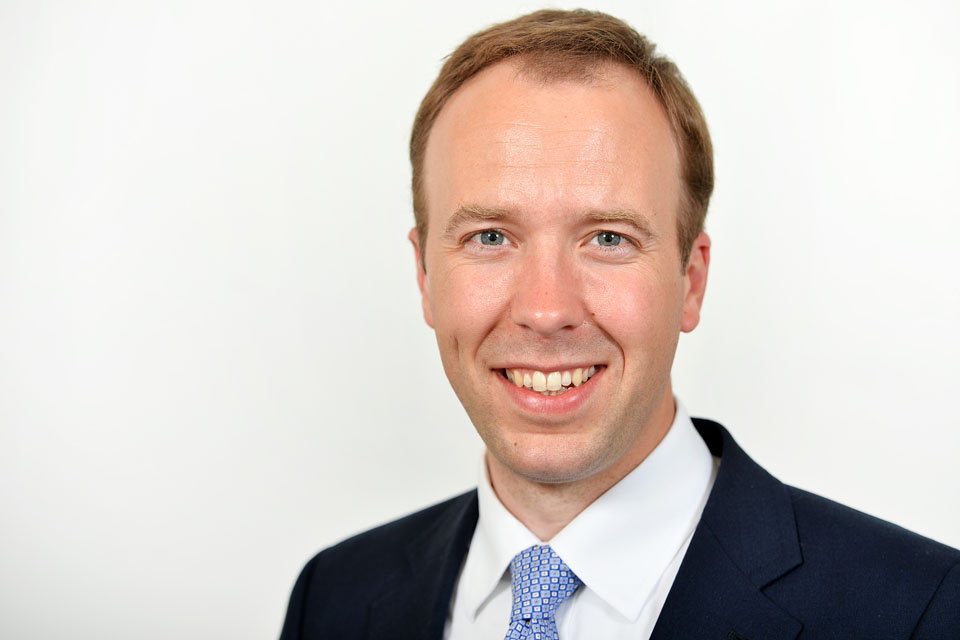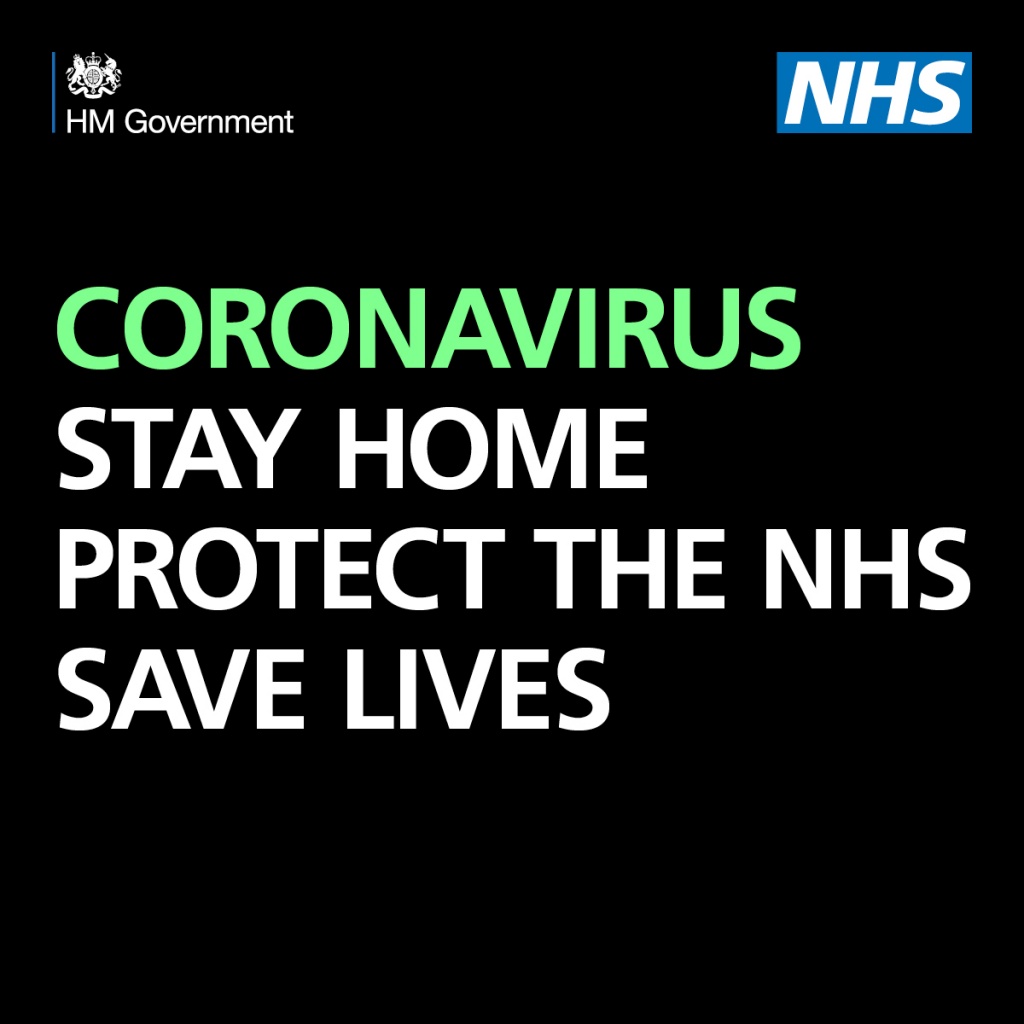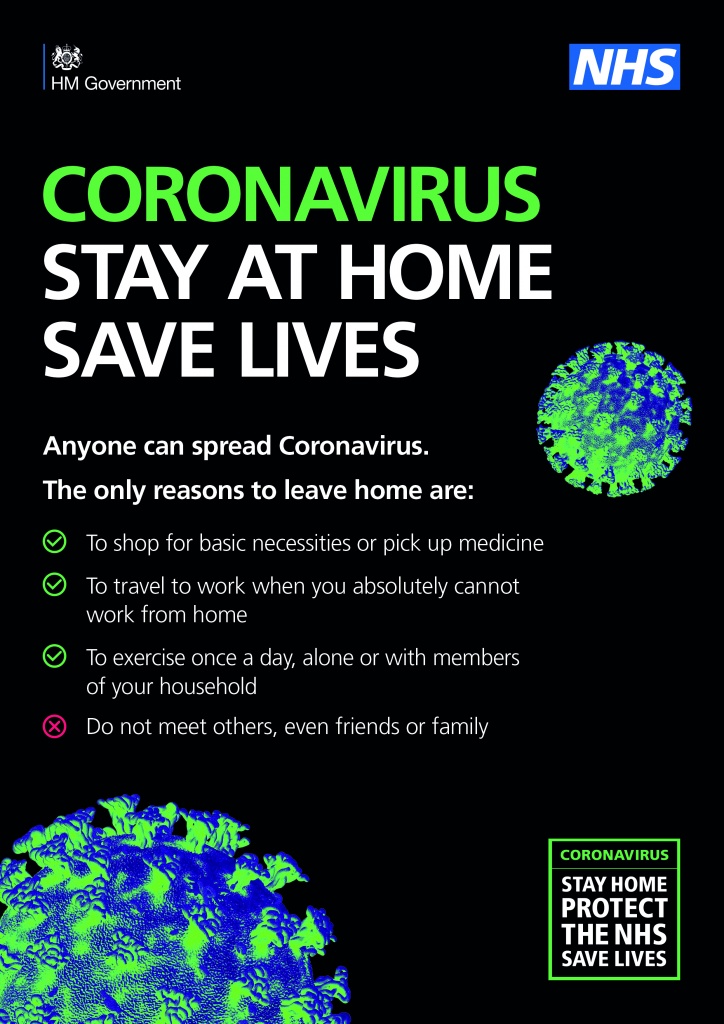
Health and Social Care Secretary Matt Hancock gave the 1 May 2020 Downing Street daily press briefing on the government’s response to the COVID-19 pandemic.
Professor John Newton, National Testing Coordinator, and Professor Stephen Powis, Medical Director of the NHS in the presentation joined Matt Hancock.
Matt Hancock said: Every day we are working through our plan to protect life and protect the NHS by slowing the spread and building the capacity so that, at all times, the NHS has got the capacity to give can offer the very best care to everyone who needs it.
In today’s briefing, after setting out the daily statistics, I want to talk about testing. But beforehand I would like to share some really good news. Earlier this week, I said that we are now able to begin the restoration of NHS services. Now that we are past the peak, I can tell you about the next step ‒ the restoration of fertility services.
Few families have been untouched by the amazing advances in fertility treatment over the past generation, and I know just how time-sensitive fertility treatment can be. And I know how important it is to the families affected. And I know that this treatment can change lives for the better, forever.
So when I say thank you to all of you everybody watching for staying at home to protect the NHS, of course I’m saying thank you on behalf of the lives you are saving. But I’m also saying thanks on behalf of the lives that the NHS can now once again, help to create.
Because, together, we have protected the NHS, and now we are now restoring the NHS, and restoring the chance for so many couples to start a family.
Daily statistics
Turning to the figures, 177,454 people have tested positive for coronavirus, an increase of 6,201 since yesterday. 15,111 people are currently in hospital with coronavirus and 27,510 people have now sadly died across all settings, an increase of 739. As one, we will remember them and treasure their memories.
This is a virus that has a devastating impact on families, friends, on local communities. And right across government, we are working day and night to defeat it.
At the beginning of last month, at this podium, I set a goal that anyone who needs a test should get a test. And that as a nation, we should achieve 100,000 tests per day by the end of the month. I knew that it was an audacious goal, but we needed an audacious goal because testing is so important for getting Britain back on her feet.
I can announce that we have met our goal. The number of tests, yesterday, on the last day of April, was 122,347. This unprecedented expansion in British testing capability is an incredible achievement. But it is not my achievement. It is a national achievement, achieved by a huge team of people working together.
And I tell you this: the testing capacity that we built, together, will help every single person in this country. Testing is crucial to suppress the virus.
I know from personal experience, too, just how much people with symptoms want to know if they have got the disease. I know that I did. It helps remove the worry, it helps keep people safe, and it will help us to unlock the lockdown.
So many people have tragically died and the challenge that we still face is so huge, but we are making real progress.
I want to take a moment to thank and pay tribute to the incredible team who did this together and who joined together in one of the greatest national mobilisations that we’ve seen.
We brought together the best civil servants, the best minds from the private sector, the best scientists, the best lab technicians and the best of the best in the armed forces.
Setting stretching, ambitious goals in a crisis has a galvanising effect on everyone involved. It’s a mission. If we hadn’t been so bold, if we had chosen a safer, easier path, I just can’t see how we would have built the capacity that we need.

In a short few weeks, we’ve:
- created a new test for the virus
- built a network of regional testing centres
- put a fleet of mobile testing units on the road.
- and created home testing kits, so if you can’t get to a test, we can get the test to you
We’ve more than doubled the capacity of NHS and Public Health England labs, and created 3 brand new mega-labs to analyse the results.
So many people have played a part in this work. British diagnostic companies like Randox and Oxford Nanopore and Medical Wire and DNANudge and Samba. Logistics companies like the Royal Mail and Yodel, who were brilliant and got us out of a real hole this week. Academics like Professor Derek Crook and Sir John Bell from Oxford, and Professor Ara Darzi from Imperial.
Deloitte and Boots who have delivered our drive-through centres, AstroZeneca, GSK and Novacyte, whose lab goes on stream next week, Public Health England and the NHS, of course, who pulled out all the stops. Professor Sharon Peacock, Professor John Newton And UK Biocentre and the Crick, who set up high-tech laboratories.
And also it wasn’t just a national effort. People from across the world, including ThermoFisher, Hologic, Abbott and Amazon from the US, Qiagen from Germany and Roche from Switzerland.
And this is how we did it. Because everybody everyone worked together with grit and determination to reach a shared goal, and they thrived because the team contained a diversity of perspectives, backgrounds and, critically, a diversity of thought.
And when things went wrong, which they did every single day, believe me, we didn’t ask who we could blame – we asked how we could fix it.
So, to my team, I want to say: you toiled tirelessly, night and day, and I am so proud of what you have achieved. To all of you, on behalf of the government and on behalf of the whole country, thank you.
As the Prime Minister has said, a big increase in testing provides a way to unlock the puzzle of coronavirus, and testing forms the first element of our plan to test, track and trace.
By mid-May we will have an initial 18,000 contact tracers in place. That work is underway as we speak. And if it needs to be bigger, we will scale it as required.
The combination of contact tracers and new technology, through our new COVID-19 NHS app will help tell us where the virus is spreading and help everyone to control new infections.
People will be able to know if they have been in close contact with someone who is transmitting the disease, and take the action that they need to. Our full-scale test, track and trace model will drive the infection rate down and the lower the R, and the lower the number of new infections, the more effective the track and trace system will be.
Tracking and tracing will allow us to get R down, and hold R down, and so it will allow us to lift lockdown measures.
Now this disease affects us all indiscriminately, we’ve seen that. In recent weeks, we have had to impinge on historic liberties to protect our NHS and our loved ones, and yet our goal must be freedom. Freedom from the virus, yes – and we will not lift measures until it is safe to do so.
But also we care about the restoration of social freedom and economic freedom too. Each citizen’s right to do as they please. For now, we are working together to stay home. We are impinging on the freedom of all, for the safety of all.
With this next mission, of test, track and trace, I am seeking a solution that allows us – by each of us participating – to target the measures that are needed with much more precision, and so to reassert as much as is safely possible, the liberty of us all.
That is our next mission. But for now, the most important thing for everyone to do, to keep R down and to get us all through this, is to maintain the spirit and the resolve that has had such an impact thus far.
So, please, stay at home, protect the NHS and save lives.

Kindly follow us on twitter:@AfricanVoice2










